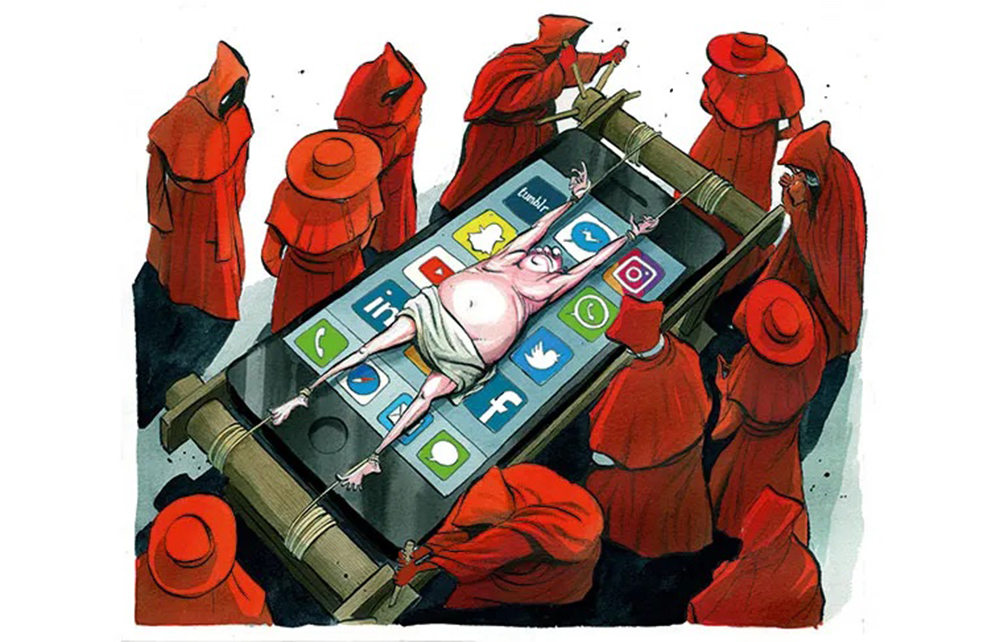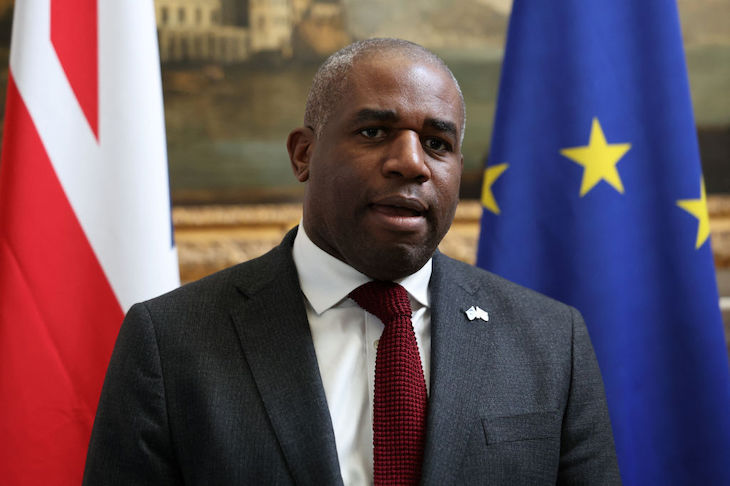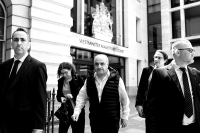Good God, there’s a lot of guff being talked about the Online Safety Act. This was a piece of legislation passed by the previous government to make the UK ‘the safest place in the world to go online’. To free speech advocates like me, that sounded ominous, given that ‘safety’ is always invoked by authoritarian regimes to clamp down on free speech. But after we raised the alarm, the government stripped out the most draconian clauses and put in some protections for freedom of expression, so even though it’s bad, it’s not quite as awful as it could have been.
What about the BBC, which got several things wrong in its reporting of an explosion in the car park of Gaza’s al-Ahli hospital?
Step forward Sir Keir Starmer. In the wake of the riots, the PM has dropped heavy hints that his government will toughen up the Act if social media companies, whom he blames for whipping up violence, don’t do more to remove supposedly harmful content from their platforms. But it’s unclear how he’d amend the Act or why his political comrades think it’s ‘not fit for purpose’ (Sadiq Khan).
Are the Act’s critics claiming the duties it imposes on companies to remove illegal content – stirring up racial hatred, for instance, or inciting people to commit crimes – are being ignored because the penalties aren’t severe enough? That would be an odd thing to argue since Ofcom, which has been given the job of enforcing the new rules, is still consulting about these duties and they won’t come into force until next year. When they do, failure to comply could result in a fine of up to 10 per cent of annual global turnover – which for Facebook would be more than £10 billion – and jail sentences for ‘senior managers’. Isn’t that draconian enough?
Or do they mean that one of the criminal offences created by the Act – the section 179 false communications offence, which came into force in January – applies only to disinformation, not misinformation? Last week, Cheshire police arrested a 55-year-old woman for wrongly identifying the Southport attacker as a Muslim asylum seeker, and kept her in custody for 36 hours before releasing her pending further investigation. I’m in touch with that woman, who’s a member of the Free Speech Union, and while she may be guilty of spreading misinformation, it would be hard to charge her with the ‘s179’ offence, because one of its tests is that ‘the message conveys information the person knows to be false’ and this wasn’t the case here. In her tweet, she added ‘if this is true’ and when she discovered it wasn’t, she deleted it. I’d be amazed if she’s charged, but if she is the Free Speech Union will pay for her defence.
Does Sir Keir want to broaden that offence to catch people guilty of spreading dangerous misinformation? If so, would that include the public health officials who, in 2021, overstated the efficacy of the Covid vaccines and downplayed the harms? What about the BBC, which got several things wrong in its reporting of an explosion in the car park of Gaza’s al-Ahli hospital on 17 October, overestimating the number of casualties and wrongly blaming an Israeli airstrike? No doubt that wasn’t deliberate – misinformation, not disinformation – but the report certainly caused harm, contributing to the cancellation of a peace summit between Joe Biden and various Arab leaders.
Or perhaps what critics of the Act are thinking of is the removal by the last government of the so-called ‘legal but harmful’ clause, although – mis-information alert! – those words never appeared in the original Bill. The bit that I and others successfully lobbied to have taken out was a clause empowering the secretary of state at the Department for Digital, Culture, Media and Sport to lay a statutory instrument identifying a list of lawful content that social media companies would be obliged to remove. We persuaded the government this would be a hostage to fortune, given the risk that a Labour secretary of state could include perfectly legitimate criticism of public policies on that list – such as Ed Miliband’s rush towards net zero.
It seems we were right, because I’m pretty sure this is what Sir Keir has in mind by toughening up the Act – and if that clause is put back in, you can bet your bottom dollar the first list drawn up by Lisa Nandy, the Culture Secretary, will include supposedly harmful misinformation about climate change, as well as any posts challenging critical race theory, gender identity ideology and immigration policy.
Which gets to the heart of what’s wrong with the government criminalising misinformation or forcing companies to remove it: misinformation is just a euphemism for any point of view the radical progressive left dis-agrees with. The Online Safety Act is authoritarian enough without the current government making it worse.








Comments